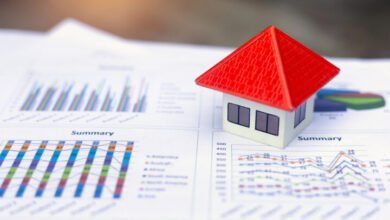‘Angry’ landlord complains property owners are being ‘demonised’ by renters and politicians

An Australian has unleashed on politicians and renters across the country for “demonising” property owners.
Tenants have been in a but homeowners are also being put from high interest rates
Ann-Maree Eastman and her husband Phillip have several properties in their portfolio and they aren’t happy with Greens MP Max Chandler-Mather’s suggestion to roll back and .
Are you struggling as a property owner or renter? Email
Eastman voiced her outrage on the ABC’s Q+A show and asked why should property owners be penalised for their success.
“Why do politicians feel that they need to keep taxing or changing the rules for how to claim our legitimate business expenses?” she said on the programme.
“Owning property is a business, and takes time and effort to make sure all is running smoothly. I’m just so angry that, as a landlord, I shouldn’t have to feel guilty about owning property – or properties in our case.
“Why does it appear that all landlords are demonised and put in the same bracket?”
But Chandler-Mather called Eastman’s question “unfair” because there are Aussie tenants who are struggling to keep a roof over their heads at the moment.
In addition to adjusting negative gearing and capital gains tax, the Greens spokesman for housing and homelessness said there needs to be a law in place to prevent landlords from jacking up the rent for tenants.
“We desperately need caps on rent increases right now, because the human consequences of [the current system], the people I’ve spoken to, single moms choosing between buying their baby’s nappy rash cream, or paying the rent,” he said.
When asked how that might affect landlords who are being pushed to the brink by interest rates, Chandler-Mather said at least those property owners have options.
RELATED
“The worst consequences for that is selling an investment property and making huge capital gains,” he said.
“The interests of landlords get put up against renters if they are equal, but they are not because if a renter loses their home, they’re sleeping in their car on the street. If a property investor has to sell their home, that might be bad but they still get a huge sale price out of that home.”
The Greens believe tax handouts for property investors, which include negative gearing and capital gains tax discount, will cost the budget $39 billion in forgone revenue. By changing those handouts, the party said it would stop pushing house prices up and make homes more affordable for first home buyers.
“What’s really unfair is the federal government hands out billions of dollars in tax handouts, to property investors who own multiple homes,” Chandler-Mather said on Q+A.
“What that means is if you are a first homebuyer going to an auction, you’re going to that auction and you’re losing to a property investor.
“Because they can use negative gearing and the capital gains tax discount to bid up the price of housing and screw over first home buyers. It’s deeply, deeply unfair.”
NSW minister for housing and homelessness Rose Jackson was also on the panel and she said it’s not as simple as removing these handouts.
“We’ve got ourselves into such a dysfunctional quagmire and mess that everyone does have to come to the table and certainly that includes state governments … we’ve got work to do, but so does the Commonwealth and so does local government,” she said.
“We’ve got to acknowledge that if there was a lever to pull or a button to press, and it was that easy, we would have done it. There’s a lot of work to do to get our housing market back to somewhere resembling a fair distribution of housing.”
What is negative gearing?
Negative gearing is where costs associated with an asset, such as a property, are greater than the income earned from owning it.
One of the big advantages of negative gearing is that Australia provides concessions on capital gains tax – which is the tax you pay on profits from selling assets.
Only 50 per cent of the increase in the value of the asset when sold is subject to capital gains tax, however it has to have been owned for more than 12 months. Owning an asset such as an investment property is viewed as an income under these laws.
That means Aussies can deduct their losses when they do their tax returns by negative gearing.
How does capital gains tax fit into the equation?
The housing market has seen properties jump dramatically in value in a short space of time. As a result, investors can make large profits from buying homes cheaply, renovating them and renting them out before selling them.
However, there are also plenty of ‘mum and dad’ investors and owners who buy property to rent out, having a tenant covering their mortgage repayments, while they claim expenses such as council tax, strata or body corporate fees and other associated costs.
“While making a loss on an investment property or shares might initially seem counterintuitive, some people are willing to do this in the expectation that the capital gain when they sell the asset will more than offset that loss,” the Treasury info sheet on negative gearing explains.
Get the latest Yahoo Finance news – follow us on Facebook, LinkedIn and Instagram.





